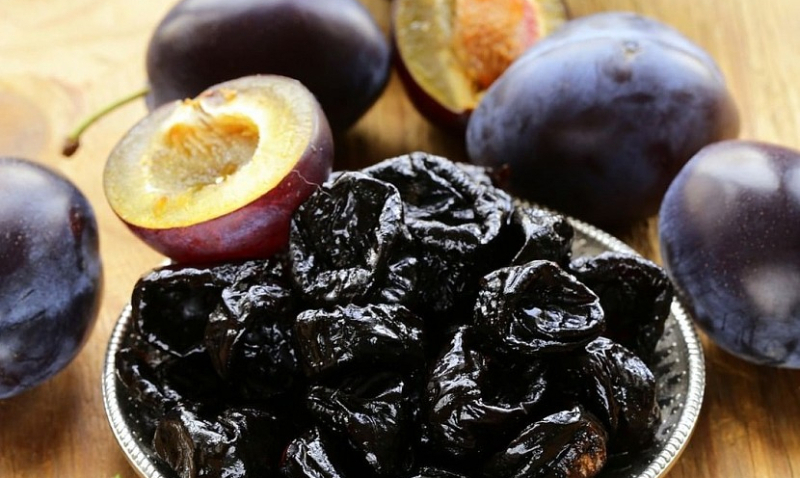
Benefit and pleasure: why we love prunes
0
The dried fruit helps normalize digestion, strengthens bones, contains many antioxidants and other useful substances. But it also has contraindications
Prunes are a tasty and healthy dried fruit that can be used to replace desserts or be added to hot dishes.
What important to know
Not every plum is suitable for drying and turning into a dried fruit. Strict requirements are put forward to them: small fruits are needed, because they are easy to dry. It is necessary that the fruit should contain about 20% dry matter and 12% sugar, while the composition should contain as little water and acid as possible.
Most often, large productions dry plums in steam chambers. Up to 60% of the liquid is blown out of the fruit, and only after that is the stone removed – otherwise, due to the violation of the integrity of the fruit, they may ferment. To make the fruit soft, it is poured with boiling water or steamed.
Prunes go well with various foods, they are used to make jams and fillings for pastries and candies, and they can also be added to porridge or cheese.
p>
Calorie and nutritional value
A portion of prunes weighing 28 g contains:< strong>67 calories
18 g carbohydrates
2 g fiber
11 g sugar
It contains B vitamins, vitamin K, copper, manganese, magnesium, phosphorus, and iron. Prunes contain more calories, fiber and carbohydrates than fresh plums.
Prunes benefits
Prunes are rich in vitamins and minerals, fiber and antioxidants. These substances help normalize digestion, protect the body from chronic inflammation, promote heart and bone health.
Improves metabolism
Prunes have a lot of fiber. Insoluble – helps the digestive process and normalizes stool, soluble – helps absorb nutrients from food.
Fiber can also speed up the speed of food passing through the gastrointestinal tract.
Prunes also contain sorbitol – a sugar alcohol with a natural laxative effect [4].
A study was conducted in which people ate approximately 50 g of prunes daily for three weeks. Their digestion improved compared to the plantain group.
Strengthens bones

Prunes have vitamin K, phosphorus, magnesium and potassium, as well as antioxidants. They can prevent bone loss and help maintain healthy bone density and bone formation.
Research has found that dried fruit can also reduce the risk of osteoporosis and osteopenia associated with low bone density [ 6].
There are still no final conclusions as to what it is in prunes that has such an effect on bones. But scientists attribute this property to the antioxidants contained in the dried fruit and their ability to reduce inflammation.
Dried fruit can also increase the level of hormones involved in bone formation. Studies show that compared to other fruits, prunes are the most effective in preventing bone loss and even stopping the process if it has already started. But additional data and experiments are needed.
Contains antioxidants
Antioxidants protect cells from damage by free radicals and can reduce the inflammatory process, and polyphenols protect against heart disease and diabetes. In one study, polyphenols in prunes significantly reduced markers of inflammation associated with joint and lung disease.
Anthocyanins are a special type of polyphenols that are considered the most active antioxidants in prunes. They can reduce the risk of developing heart diseases and oncology [11]. More research is needed for definitive conclusions.
May lower blood sugar
Prunes contain neochlorogenic and chlorogenic acids, which help lower blood glucose and LDL (low-density lipoprotein) cholesterol.
If you eat a little prune, a significant spike in blood sugar will not occur, despite the high content of carbohydrates. Scientists attribute this to its ability to increase levels of adiponectin, a hormone that plays an important role in regulating blood sugar.
Fiber also slows the rate at which the body absorbs carbohydrates after a meal. Therefore, sugar rises gradually, and not suddenly.
But prunes have a lot of calories and are easy to overeat. The size of an average portion is 44-87 g.
Influences the health of the heart and blood vessels

In one study, participants were divided into two groups. One drank plum juice and ate up to six prunes a day. The second drank a glass of water on an empty stomach. The experiment lasted eight weeks. In the first group, the pressure and level of “bad” LDL cholesterol was significantly lower than in the second.
Side effects
In moderate amounts, prunes do not cause harm. But if it is uncontrolled, you can get a number of unpleasant side effects.
Too many prunes a day can cause diarrhea because the fiber and sorbitol they contain have a laxative effect. Also, due to the content of these substances, dried fruit can lead to gas formation, nausea, spasms and even vomiting. 100 g of prunes contain 14.7 g of sorbitol, with only 5 g of sorbitol potentially causing bloating. Consuming 20 g or more of sorbitol can cause severe convulsions.
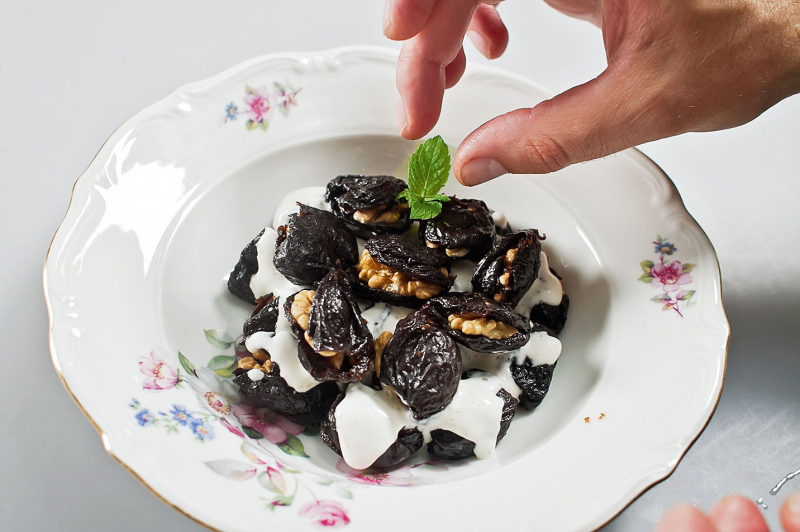
Acrylamide is a chemical that can form in foods when heated. This happens as a result of the interaction of sugars and a certain amino acid (asparagine). If ingested, acrylamide can increase the risk of developing cancer.
Everything is good in moderation, so the recommended dose for those who control blood sugar is no more than 200 g of fresh plums per day. And it is better to eat it before the main meal.
People with type 2 diabetes should avoid eating a large amount (more than 400 g per day) of fruits with a high glycemic index (bananas, melon, very ripe pears and plums), as well as candied fruits and candied fruits, which contain a lot of sugar and have a high calorie content.
Prunes already belong to foods with a high carbohydrate content, so added sugar or chocolate does not bring additional benefits, on the contrary – increase the glycemic index and caloric content and become a threat to patients with diabetes and excess body weight.
It is not recommended to abuse prunes in case of unstable digestion, irritable bowel syndrome, etc.
You cannot use prunes within two days before endoscopic examination.
Prunes can cause allergies in those who are prone to it. It contains a fairly significant amount of vitamin K (65 mcg per 5 pcs.), which should be remembered by patients taking warfarin.


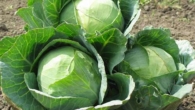

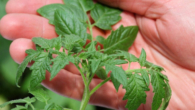



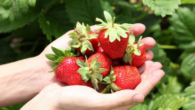
Leave a Reply